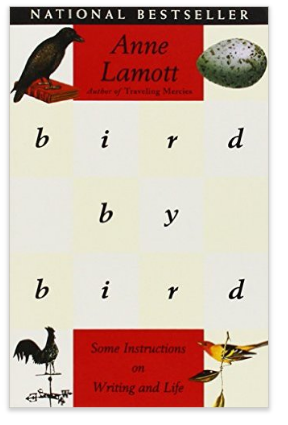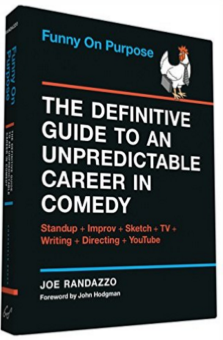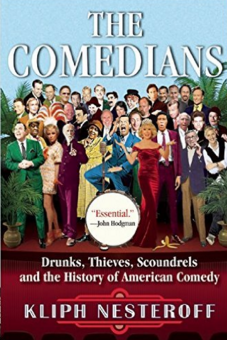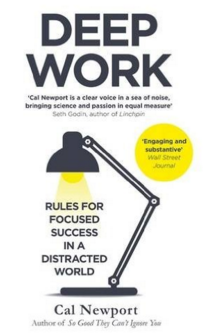I recently read “Success and Luck: Good Fortune and the Myth of Meritocracy” by Robert H. Frank. Below are the quotes I found most interesting. If you like the quotes, buy the book here.
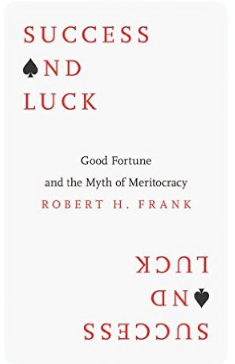 “Because the contests that mete out society’s biggest prizes are so bitterly competitive, talent and effort alone are rarely enough to ensure victory. In almost every case, a substantial measure of luck is also necessary.” (3)
“Because the contests that mete out society’s biggest prizes are so bitterly competitive, talent and effort alone are rarely enough to ensure victory. In almost every case, a substantial measure of luck is also necessary.” (3)
“Taking a risk means that a successful outcome isn’t certain. So if Varney took risks and was successful, he was lucky by definition!” (5)
“Branko Milanovic has estimated, roughly half of the variance in incomes across persons worldwide is explained by only two factors: country of residence and the income distribution within that country.” (7)
“Napoleon Bonaparte once observed, “Ability is of little account without opportunity.” (7)
“So if you want to be smart and highly energetic, the most important single step you could take is to choose the right parents. But if you have such qualities, on what theory would it make sense for you to claim moral credit for them? YOu didn’t choose your parents, nor did you have much control over the environment in which you were raised. You were just lucky.
Many people don’t like to work hard and also have limited endowments of cognitive abilities and other traits that are highly valued in the marketplace. In the competitive environments most of us inhabit, those people are unlucky.
In short, even if talent and hard work alone were enough to ensure material success – which they are not – luck would remain an essential part of the story. People with a lot of talent and an inclination to work hard are extremely fortunate.” (8)
“Chance events have always mattered, of course, but in some respects they’ve grown more important in recent decades. One reason for that has been the spread and intensification of what the economist Philip Cook and I have called winner-take-all markets. These markets often arise when technology enables the most gifted performers in an arena to extend their reach.” (9)
“In such winner-take-all markets, the quality difference between best and second best is often barely perceptible, but the corresponding difference in rewards can be enormous.” (10)
“It’s one thing to say that someone who works 1 percent harder than others or is 1 percent more talented deserves 1 percent more income. But the importance of chance looms much larger when such small performance differences translate into thousands-fold differences in earnings.
The spread of winner-take-all markets has amplified the importance of chance in a second way. In almost all cases, the prodigious rewards that accrue to a handful of winners in these markets attract enormous numbers of contestants. And the more contestants there are, the more luck matters.” (10)
“Denying the importance of luck may actually help people surmount the many obstacles that litter almost every path to success.” (11)
“Perhaps the most important such obstacle is that most of us find it harder to summon effort when the resulting rewards are either delayed or uncertain. Narratives that stress luck’s importance call attention to the fact that not even the most diligent current efforts can guarantee future success and by so doing may encourage some to sit back and hope for the best.” (11)
“Andrew Francis and Hugo Mialon estimated, for example, that couples who spent more than $20,000 on their weddings were more than 12 percent more likely to divorce during any given year than were those who spent between $5,000 and $10,000.” (15)
“The Music Lab findings suggest that many songs (or books or movies) that go on to become hits owe much of their success to the fact that the first people to review them just happened to like them. Works of unambiguously high quality are of course more likely to earn positive early reviews and may succeed even in the face of some negative early commentary. But most artistic endeavors elicit a broad range of subjective evaluations. Some go on to succeed simply because the first people to express their opinions about them publicly just happened to come from the right tail of the opinion distribution. Which is to say, many artistic endeavors owe their success, at least in part, to pure dumb luck.” (31)
“To acknowledge that seemingly trivial random events often matter enormously is not to suggest that success in life is independent of talent and effort. In most competitive arenas, those who do well are almost invariably both highly talented and incredibly hardworking.” (39)
“Charlie Munger has written, “The safest way to try to get what you want is to try to deserve what you want.”” (39)
“It is far more likely that a book of given quality will become a best seller if it was written by an author of earlier best sellers.” (45)
“Winner-take-all markets generally display two characteristic features. One is that rewards depend less on absolute performance than on relative performance… Second is that rewards tend to be highly concentrated in the hands of a few top performers. That can occur for many reasons, but most often it’s a consequence of production technologies that extend a given performer’s reach.” (45-46)
“The top one-thousandth of 1 percent of song titles now account for a much larger proportion of sales (15 percent in 2011, up from only 7 percent in 2007).
Trends for weak-selling titles have also been running counter to the long-tail prediction. THe proportion of titles selling fewer than one hundred copies annually, for example, was 94 percent in 2011, up from 91 percent in 2007.” (48)
“CEOs of the largest American corporations, who were paid forty-two times as much as the average worker as recently as 1980, are now paid more than four hundred times as much.” (51)
“But these global pressures do not account for what’s been happening in the white-collar professions. The growing inequality at the top is even more dramatic than at the bottom, as the most highly compensated corporate managers, lawyers, physicians, and even preachers have pulled away from the pack.” (54)
“Winning a competition with a large number of contestants requires that almost everything go right. And that, in turn, means that even when luck counts for only a trivial part of overall performance, there’s rarely a winner who wasn’t also very lucky.” (63)
“If luck has only a very small effect on performance, why is it so hard to win a large contest unless you’re very lucky? Two factors are involved. One is that the inherent randomness of luck means that the most skilled contestant is no more likely to be lucky than anyone else. The second factor is that with a large number of contestants, there are bound to be many with close to the maximum skill level, and among those at least some will also happen to be very lucky. With very large contestant pools, then, there will almost always be someone who is almost as skillful as the most talented contestant, but is also significantly luckier. So even when luck counts for only a tiny fraction of total performance, the winner of a large contest will seldom be the most skillful contestant, but will usually be one of the luckiest.” (66)
“I emphasize that this isn’t the same as saying that most winners win only because they’re lucky. In highly competitive arenas, most would not have even been realistic contenders had they not been both extremely able and hardworking. It would be grossly unfair, the, to say that most winners didn’t deserve their rewards.” (68)
“Bryan Cranston said, “Luck is a component that a lot of people in the arts sometimes fail to recognize: that you can have talent, perseverance, patience, but without luck you will not have a successful career.” (68)
“People with more realistic beliefs about their talents and about luck’s importance may actually find it more difficult to muster the will to overcome the difficult obstacles that litter every path to success.” (70-71)
“Nondepressed students consistently overestimated the quality of their own performance in tasks at which they succeeded, and underestimated the importance of their own performance in tasks in which they performed poorly.” (73)
“A narrative that openly acknowledges the strong link between success and luck calls explicit attention to this uncertainty. It might thus discourage the very efforts that are so often critical for success.” (76)
“Parents who teach their children that luck doesn’t matter may for that very reason be more likely to raise successful children than parents who tell their children the truth.” (77)
“Pride in one’s achievements is often one of the most powerful motivations to expend the effort it takes to succeed.” (82)
“Liberals are more likely than conservatives to embrace the importance of luck in life.” (83)
“The effects of a decline in any one person’s after-tax income are dramatically different from those of an across-the-board decline. If you alone experience an income decline, you’re less able to buy what you want. But when everyone’s income declines simultaneously, relative purchasing power is unaffected. And it’s relative purchasing power that determines who gets things that are in short supply.” (92)
“Overlooking luck’s role makes those who’ve succeeded at the highest levels feel much more entitled to keep the lion’s share of the income they’ve earned.” (93)
“Of the one hundred largest US counties, those where income inequality grew most rapidly were also those that experienced the largest increases in three important symptoms of financial distress: divorce rates, long commutes, and bankruptcy filings.” (114)
“Because chance events figure prominently along virtually every career trajectory, people who claim complete responsibility for their own success are almost surely claiming more credit than they actually deserve, a move that’s unlikely to make them more attractive to others.” (132)
“In short, it may be in your interest to acknowledge luck’s role in your success if only because people will think better of you for having done so.” (141)
Liked the quotes? Click here to buy the book.

